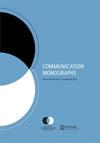Fighting lies with facts or humor: Comparing the effectiveness of satirical and regular fact-checks in response to misinformation and disinformation
IF 3.1
2区 文学
Q1 COMMUNICATION
引用次数: 2
Abstract
ABSTRACT This study tested the effectiveness of fact-check format (regular vs. satirical) to refute different types of false information. Specifically, we conducted a pre-registered online survey experiment (N = 849) that compared the effects of regular fact-checkers and satirist refutations in response to mis- and disinformation about crime rates. The findings illustrated that both fact-checking formats – factual and satirical – were equally effective in lowering issue agreement and perceived credibility in response to false information. Instead of a backfire effect, moreover, the regular fact-check was particularly effective among people who agreed with the fact-check information; for satirical fact-checking, the effect was found across-the-board. Both formats were ineffective in decreasing affective polarization; it rather increased polarization under specific conditions (satire; agreeing with the fact-check).战斗在于事实或幽默:比较讽刺和常规事实核查在应对错误信息和虚假信息方面的有效性
摘要本研究测试了事实核查格式(常规与讽刺)驳斥不同类型虚假信息的有效性。具体来说,我们进行了一项预先注册的在线调查实验(N = 849),比较了常规事实核查者和讽刺作家在回应有关犯罪率的错误和虚假信息时的反驳效果。研究结果表明,两种事实核查形式——事实核查和讽刺核查——在应对虚假信息时,在降低问题一致性和感知可信度方面同样有效。此外,定期的事实核查对那些认同事实核查信息的人尤其有效,而不是适得其反;对于讽刺性的事实核查,这种影响是全面存在的。两种形式对减少情感极化均无效;相反,它在特定条件下加剧了两极分化(讽刺;同意事实核查)。
本文章由计算机程序翻译,如有差异,请以英文原文为准。
求助全文
约1分钟内获得全文
求助全文
来源期刊

Communication Monographs
COMMUNICATION-
CiteScore
5.40
自引率
0.00%
发文量
12
期刊介绍:
Communication Monographs, published in March, June, September & December, reports original, theoretically grounded research dealing with human symbolic exchange across the broad spectrum of interpersonal, group, organizational, cultural and mediated contexts in which such activities occur. The scholarship reflects diverse modes of inquiry and methodologies that bear on the ways in which communication is shaped and functions in human interaction. The journal endeavours to publish the highest quality communication social science manuscripts that are grounded theoretically. The manuscripts aim to expand, qualify or integrate existing theory or additionally advance new theory. The journal is not restricted to particular theoretical or methodological perspectives.
 求助内容:
求助内容: 应助结果提醒方式:
应助结果提醒方式:


